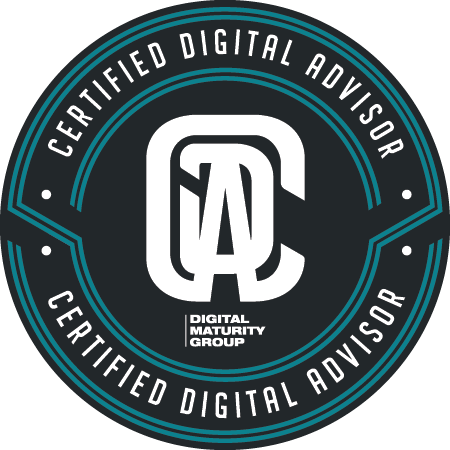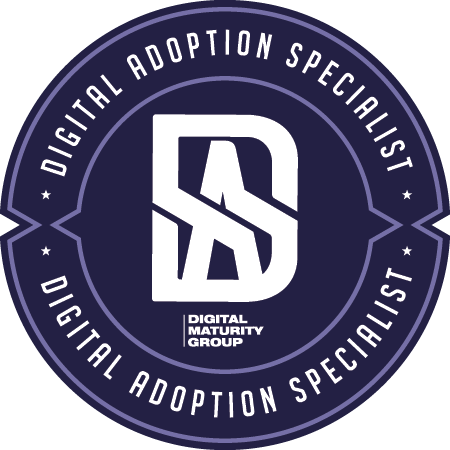From David Daigle, Crew Chief at Wingman Direct Marketing (WMDM)
Three years ago, I wrote on my personal Facebook wall (do they still call it that?), that my “One Day” has officially become “Day One.” I became an entrepreneur.
On August 9, 2017, I incorporated my business, making the huge leap of faith to carve out my own professional path. On that day, Daigle Direct Inc. was born. A lot has happened in the 3 years since, including the onboarding of several new clients, a handful of talented staff, trust in a dozen important vendors, and even a name change. As you know, we now proudly house the mantle of Wingman Direct Marketing (WMDM). So, in the spirit of entrepreneurialism and paying it forward, below I have gathered some wisdom from these three years to share with future entrepreneurs. (And to close this blog, I have shared some very important “thank you” callouts to many people and institutions who helped me get to 1,100 days in business.
First the business tips for entrepreneurs:
David’s 10 Tips for Entrepreneurs
1. Start today.
You can’t run a marathon without taking the first step. If you wait until your product or service feels perfect, someone else will already be doing a better job of helping your customers solve their problems. It doesn’t have to be perfect out of the gate. You will never have enough information, experience, funding, or time to design the ideal vision. Your future customers will tell you what changes or features are needed. Get out there. Get some users. Worry about perfection later (but know that perfection is unattainable).
2. Put yourself out there.
I mean this in every way imaginable. If you have a great idea, product or service that is second-to-none — but no one knows about it, you do NOT have a business. This doesn’t just mean advertising or branding or marketing. It means you need to tell your friends, family, and colleagues about it. Your passion will win them over. They want to see you succeed and will help in ways you may not comprehend. They will be your unpaid salesforce. Ambassadors of your venture. You need to be in front of your idea. At the end of the day, people buy from those they trust and believe in. If you are not in front of your idea, what is in it for them to win them over?
3. Focus on solutions, not services.
If you can solve a problem that people have, you have a viable business. If you see a problem that bugs you and you can conceive a solution, you are halfway there. Focus on why this is a problem for you and devise a solution. In this instance, you are the ideal persona you are solving for. Don’t focus on anyone else or any other problem you are less familiar with. Fix it. Then, find look-alike individuals that share the same problem and position your solution to them.
4. Don’t fall in the trap of wishful thinking.
Use stories of entrepreneurs creating billion-dollar enterprises from their garage as inspiration. But don’t try and replicate their successes by doing exactly what they did. Their situations, expertise, and passions are/were different than yours. (not necessarily better — just different). Many start-ups begin their voyage with completely unrealistic expectations of the level of effort required and how long it takes to get a business off the ground. So many give up way too soon. Recognize that there are thousands of roads to success. You need to back away from dead ends and take detours along the way to find your path to your success. Have a willingness to do whatever it takes to succeed, even if that means working hard for a long time.
5. Focus on the next step. Then the next. Then the next.
In the same vein as Tip #4, don’t get so caught up with what your company could be that you neglect what it needs to be today. Your goal might be to have 100 clients. If you have zero clients to start with, your first goal needs to be to attract one client.
6. Love what you do.
If you don’t, Tip #2 will prove very difficult. Stress is working in a job you hate. Passion is working in a job you love. Creating a job you love will make all those hours worthwhile because it is leading to your own dreams — not someone else’s.
7. Stay lean and re-invest into your business.
If you are in it for the profits, then you need to reread Tip #6. The driving force that can move you from side-hustle to main-hustle is recurring revenue. But if it’s costing you though the teeth to generate revenue, there is something broken in your model. You need to generate more sales than expenses (duh!). If you don’t understand this business principle, you will soon be out of business. Work to come up with a creative solution that costs little to no money. That forced discipline will help you spend less than you make, even when you’re not making a lot. Only spend money on the things you need, such as production costs, awareness costs, and the costs for fulfilling orders.
8. Money vs. Time.
If your business is making and selling widgets and you are extremely good at it, it’s likely your bookkeeping, marketing, law or insurance skills are not as deft. Just because you learned HTML in college and can make your own website, it does not mean you should. If you have a service that charges $XXX/hour, wouldn’t it be better to use your time making $XXX/hour instead of building a website you can outsource for a fraction of that amount? Yes, to some degree, this tip is counter to the previous one recommending you stay lean. But you need to use your time as wisely as you can. It is not a badge of honour to work countless hours on your business if you could have used those hours working smarter.
9. Work with people you like; but more importantly, people that improve your business.
A hard lesson in people leadership is knowing when the “fit” is not working. Newly onboarded vendors and staff have a short lifeline where you give them the benefit of the doubt. Do not be slow to address situations when you start to doubt the benefit. As hard as it is to make personnel and/or vendor decisions — particularly when they are friends or family — you can’t afford the “price” of keeping someone when they are not performing or leaving a scorched Earth vapour trail behind them that impacts overall morale and corporate culture.
10. Don’t take it so seriously.
You should be passionate about your business idea. That is clear. But have fun along the way. Treat your staff, clients and vendors with respect and good humour. Be there for your family. Enjoy the ride.
Special Thanks
Thank you to the Wingman clients—past and current—that have believed in us as much as we have believed in them. These include Shaw Communications, CBN Commercial Solutions, Collabria Financial, Access eHealth Technologies, SUM Ltd, JIL & Associates, The Hangar Flight Museum, MNP, Osprey Integrity, Classic Cleaning Systems, US Tax Professionals, and more.
Thank you to my Wingman team. Without you, I have no solutions to our clients’ problems. To Kati Pauls for your incredible design skills; to Kevin—my first hire—for the digital skills you bring to Wingman and our clients; to Vivian Lee for strengthening Wingman’s social base and strategizing for all our clients to do the same for them; to Lisa Nortoft-Daigle for her master problem solving and analytics skills, and to Alex Pauls for your business development efforts.
To our vendors and partners whom we lean on daily, thank you. Thank you to Platinum Bookkeeping & Tax for keeping us sane. Thank you to GoDaddy, Microsoft, HubSpot, WordPress, Acuity, Slack, Zoom, MailChimp, and Hootsuite for making things more productive. Thank you to Point in Time Photography, Minuteman Press, One to One Mailing, Transcontinental, CBN Commercial Solutions, Mountainview Print, and Carbon Graphics. You make us look good so we can make our clients look good.
And thanks to the 300+ Wingman followers on Instagram, 200+ Wingman LinkedIn followers, 100+ Wingman Facebook followers, and 100+ Wingman email subscribers. You have lent us your trust in a way we can’t say thank you enough. Thank you.





